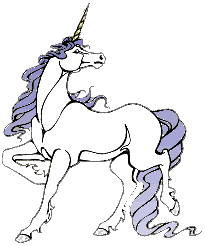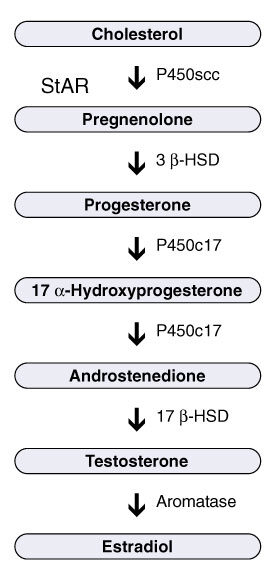Over-valuing certain abilities means looking down on people who don’t share them. Aspie supremacy is the ideology that follows from taking this to an extreme: ‘aspies’ have extraordinary powers which not only make their existence worthwhile, but make them better than other people.
Tag: Simon Baron-Cohen
For the most part, autistic people and our families do not want funds to be used on genetic research, and would prefer them to be used to focus on services and societal interventions that can impact the wellbeing, quality of life, and mental health of autistic people across the lifespan.
“There are so many basic human rights that autistic people are being denied just because society isn’t accommodating autistic people.” Read about this issue and more, such as why just because autistic people are good at “systematizing” doesn’t mean they are all destined to be engineers, and “how a different style of education is appropriate for a systemizing thinker.” Our editor Carol Greenburg and NeuroTribes author Steve Silberman join Simon Baron-Cohen for a Zoom discussion on Baron-Cohen’s new book on autism, The Pattern Seekers. —- Katherine Hill: Hi everyone, I’m Katherine Hill for Basic Books, and I’m excited to welcome you to today’s conversation about Simon Baron-Cohen’s new book, The Pattern Seekers: How Autism Drives Human Invention. Joining us is Steve Silberman, author of the award-winning NeuroTribes: The Legacy of Autism and the Future of Neurodiversity. Steve’s articles have appeared in Wired, New York Times, New Yorker, and many other…
Nicole Nicholsen womanwithaspergers.wordpress.com Rachel Cohen-Rottenberg’s Autism and Empathy website started me thinking about the whole empathy question in regards to autistic people — again. In my first post about autistics and empathy, I mentioned Theory of Mind issues as one of the possible reasons why there is a perception that autistic people lack empathy. With what I had read about Theory of Mind at the time, I’m now reexamining the concept and wondering if I had gotten it slightly wrong, especially in light of the recent challenges that other autistic writers have made to the prevailing ideas about autistics and Theory of Mind. The Sally-Anne Test The prevailing idea about autistics and Theory of Mind goes something like this: having good Theory of Mind means that a person is able to determine the contents of both one’s own mind and the minds of others; conversely, autistic people are unable to…
…One Unicorn at a Time. Carol Greenburg aspieadvocate-ascd.blogspot.com We Unicorns seldom have a chance to gather in the magical wild lands of Manhattan, but thanks to a press pass arranged by Sharon daVanport, president of Autism Women’s Network, I got to meet another of my species at a panel entitled Autistic and Female: They say That’s Rare and so Many Other Things at the Disability Studies in Education conference at Hunter College, on May 27: Dr. Elizabeth “Ibby” Grace. With a generous dollop of the whimsy autistic people are alleged to lack, Dr. Grace, an assistant Professor with the Diversity in Learning and Teaching Department and research methodologist at Louis University in Chicago, used her unicorn analogy to expose the myth behind the assumption that females with autism are rare. In fact, Dr. Grace maintains, autistic girls and women like her, and like me, are everywhere, but vastly under-identified and…
Emily Willingham www.emilywillinghamphd.com Much of what I saw at IMFAR (self-selected, obviously) focused on assessing sex hormone differences or the presumed outcomes of such differences in autistic vs non-autistic populations. As the Father of the Extreme Male Brain Hypothesis that androgen levels relate to autism, Simon Baron-Cohen appeared as senior author on several posters in this subject area and also gave a talk on the same topic. While he is possibly best known in a negative light in autism circles for his tautological “autistic people do poorly on my empathy test ergo autistic people lack empathy” ideas, what I discuss below is not related to that, at all. It’s all about the steroid hormones during development in the womb, and I found it fascinating — again, self selection as someone whose research focus was hormones during development. I’m not the only TGPA editor to have an interest in the link…
Sarah Seymour www.allkidshavespecialneeds.net Two Facebook friends who I am blessed to know (and who happen to be on the autism spectrum) made the following comments: “[Simon] Baron-Cohen says autistics are ‘mind (socially) blind” … but… who is blind?… according to Temple Grandin, neurotypicals are “sensory blind”… seems we are all pretty blind… but at least many of us autists are making great efforts to see outside ourselves… how many of you neuro…typicals can claim to match our efforts????” “I agree. 🙂 See more in the article Q&A: Temple Grandin on Autism & Language on NPR. Autistic people can be isolated, Temple Grandin says, not only because they have difficulty making a connection with so-called “normal” people, but because normal people find it difficult to put themselves in an autistic person’s shoes and see the world from their perspective.” I thought the differences they pointed out were so interesting. Having a…





